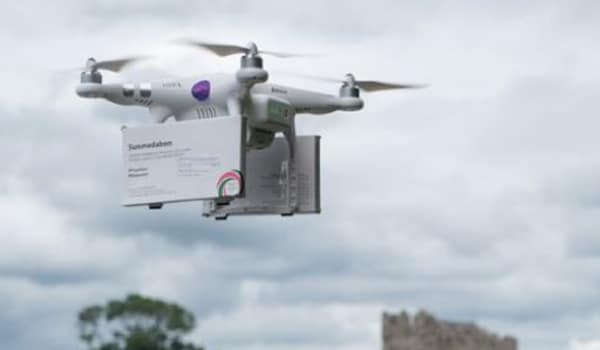
Making sense of the medicines supply chain… OR, are the pills running out or not?
by Marge Berer, for the International Campaign, 21 April 2020
If anything has proved to be dysfunctional in this pandemic, it’s the supply chain for accessing medical abortion pills and the national bureaucratic nightmare that props it up. The two medications – mifepristone and misoprostol – have been on the WHO Essential Medicines List long enough that no one should still have to prove to their governments that they are bona fide pills. Yet they still have to be approved and registered in one country after another and one brand at a time… With the world’s 195 UN member countries (plus Palestine) how many decades is that still going to take? Mifepristone was first approved in 1988 yet even today, it’s not approved in much of Latin America, Africa and the Middle East. Misoprostol approval is better but that doesn’t mean it’s accessible to women in many of the countries where it’s approved.
Medical abortion pills need to be registered in a country before supplies can be bought in, unless they’re smuggled in, of course. Or unless they’re available over (or under) the counter in pharmacies for their main use other than abortion, that is, to treat gastric ulcers. Neither of these alternatives is what is needed. This means the manufacturers, the suppliers and the brands matter a great deal, and registration equally so.
In September 2018, the International Planned Parenthood Federation, Gynuity Health Projects and the Concept Foundation launched the Medical Abortion Commodities Database to help those working on safe abortiontoidentify quality products to use in healthcare programmes and to inform policy. On the websitewww.MedAb.org(in English, French and Spanish) you can search by country, commodity type and/or brand name to see what brands are available. The site launched with information on products in 89 countries. It’s been updated on an ongoing basis, and as ofSeptember 2019, covered 97 countries.
If your country or a neighbouring country is already listed in the database, you may be able to find a companyto buy pills from.
What effects has the pandemic had on the abortion pill supply chain?
On a recent webinar hosted by the Reproductive Health Supplies Coalition in mid-April, the topics were challenges, solutions and improved coordination, as detailed below. With all the variables involved, including human innovation and commitment, the worst problems may be avoided. Moreover, what is a serious problem in one country may not be as serious in another, e.g. if the clinics happen to have stocked up just before the problem hit. Thirdly, if countries where pills are manufactured get control of the virus, including e.g. China, India and Malaysia, lockdown may be relaxed enough to allow production to restart or increase, and delivery services like flights may re-start too. Predictions beyond the short term cannot be relied upon, but fearmongering should be avoided.
Challenges and risks
- slowdowns in receiving supplies
- longer lead times between ordering and receiving supplies
- reduced supply for products and shipping capacity
- transportation issues as so many flights were grounded
- effects on sea freight – rates higher
- closed manufacturers
- reduced manufacturing and supply chain workforces
- Covid-19 emergency supplies prioritised over other supplies
- diversion of resources to Covid-19: health workers, budgets, procurement
- products sitting somewhere unused and could expire
- access to medical abortion pills decreasing
- speculation and higher prices, sporadic and variable effects.
Solutions
- potential for new entrants, to produce space, rapid scale-up and innovation
- ordering early, taking account of disruptions and delays
- contingency planning for potential late deliveries, including buffer stocks
- diversified vendor base
- anticipate multiple partial shipmentsinstead of full orders, and therefore increase frequency of orders.
Improvements in coordination
- coordination amongst international suppliers to plan, order and share stock
- coordination and engagement with national organisations and health services who are at the frontline of delivery of care
- coordination of an international call forgovernments and healthpolicymakers (international and national) to support self-care, especially but not only for abortion pills.
An 11 March 2020 article on Devex.com by Chris Purdy, head of DKT International, talks about the impacts of the virus on the availability of condoms and other contraceptives globally, and provides a comparable picture to what we can expect with abortion pills. On 8 April, he said that DKT remains concerned about access to abortion pills in the months to come but that they are trying to mitigate those risks by placing orders now with suppliers and doing what they can to overcome the supply chain challenges. They’ve received some helpful support from a few donors and are leveraging that as best they can. He rightly says that health systems are already hugely strained, and that this should make “self-care” increasingly important and more acceptable. But so far, it seems that countries are going toneed a big push to get on side when it comes to abortion pills.
One thing is absolutely clear, however – reports indicate thatdemand for abortion pills is increasing, out of fear and uncertainty about the future, and a rise in unwanted pregnancies is anticipated,resulting from rape, sexual abuse and coercive sex in lockdown situations that are already being reported from around the world.
It seems supplies of manual vacuum aspiration equipment are available and waiting to be ordered. But it also seems that those with unwanted pregnancies are all looking for that “most-wanted pill” because they need to be able to stay at home to use it. The last thing we want to see is that they have to start going online individually looking for unregistered online pharmacies that will rip them off and sell them fake pills.
SOURCES: E-mail from Chris Purdy, 8 April 2020.PHOTO: Women on Waves drone, ferrying pills, 2017



